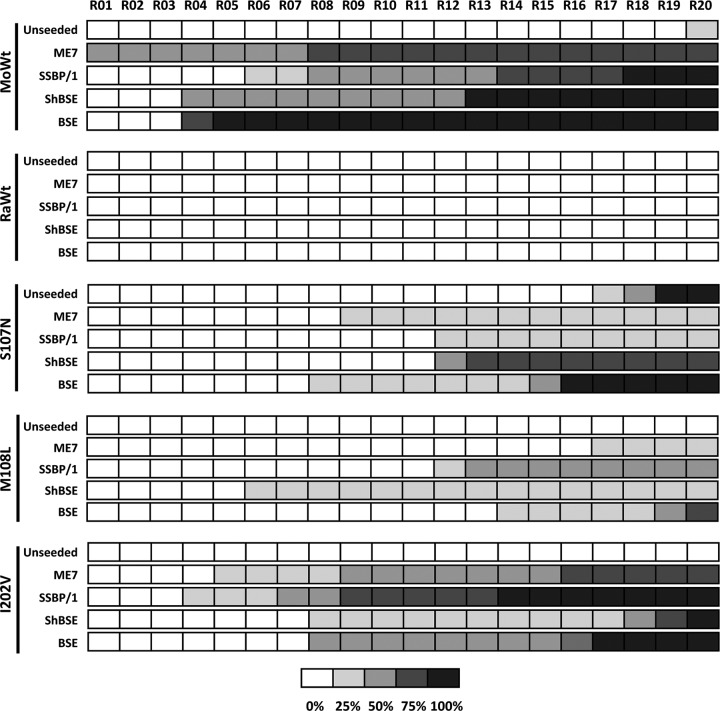FIG 10.
Mutated rabbit rec-PrPs that are more susceptible to misfolding by RML are also susceptible to prions from other species. The diagram shows rec-PrPres generation over the course of serial in vitro propagation of ME7, scrapie (SSBP/1), sheep BSE (ShBSE), and classical BSE inocula on substrates containing mutated rabbit rec-PrPs (S107N, M108L, and I202V) selected because of their higher propensity to be misfolded by mouse RML. Generation of rec-PrPres was evaluated by protease K (PK) digestion and Western blotting (with monoclonal antibody SAF84) for each recPMCA round (rounds 1 to 20). Wild-type rabbit (RaWt) and wild-type mouse (MoWt) rec-PrP-containing substrates were included as negative and positive controls, respectively. Note that wild-type mouse recombinant PrP was the most susceptible to misfolding by all the seeds used, as expected, while recombinant rabbit PrP was again unable to be misfolded. Regarding the mutated rabbit rec-PrPs, despite all being misfolded by all of the seeds used, the I202V mutant showed, in most cases, the greatest percentage of misfolded tubes and earlier affected rounds, suggesting that it is the most susceptible to misfolding by all of the seeds used. The percentages of tubes showing PK-resistant misfolded rec-PrP are indicated in greyscale according to the legend.

